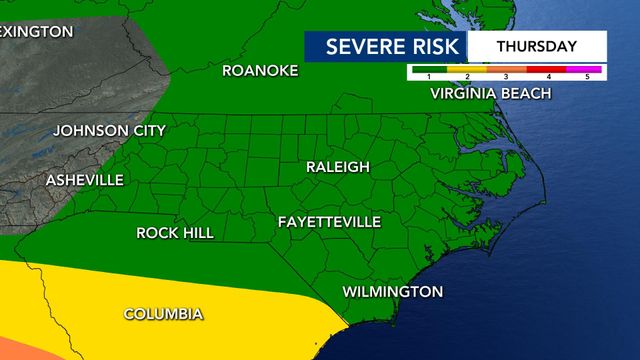Raleigh businesses, government discuss local actions to fight the global challenge of climate change
The Raleigh Chamber brought together government officials, organizations, and businesses to discuss sustainability at a conference in Raleigh Tuesday.
"We're thinking about global challenges like climate change at the local level and taking action at Lenovo, with our product development, our operations, and with our manufacturing right here in North Carolina," said Mary Jacques, Lenovo's Executive Director of Global ESG & Regulatory Compliance.
Lenovo has set a goal to be net zero by 2050 and Jacques says the company's climate commitments are more than pie-in-the-sky goals.
"Every year, we're setting a new target to make sure we're going along that pathway to hit our interim targets," Jacques said.
Lenovo is one of the first companies to have their net zero targets validated by the Science-Based Targets initiative (SBTi) – a collaborative effort by the CDP, the United Nations Global Compact, World Resources Institute and the World Wide Fund for Nature that aims to help corporations set emission reduction targets in line with the latest climate science.
"I think that's really important because it shows that our goals are comprehensive, that they're meaningful, and that they support the journey to limit global warming to 1.5 degrees [Celsius] by 2050," Jacques said.
Businesses in attendance stressed that a collaborative approach is needed, with state and local policies that support the goals of businesses.
"This is not something that you can do alone," Jacques said.
There was also a session dedicated to One Water – the idea that drinking water, waste water, storm water, and surface water are all connected and require a cohesive approach to manage.
"We don't have to look far to see some of the challenges we could face with droughts, floods, and water supply," said Nancy Daly, Wake County's water resources manager. "We've got increased intensity with storms because of climate change and so we're really trying to plan now and think about different types of solutions."
Wake County is developing a One Water plan it aims to have complete by 2025 that will address the region's water management needs over the next 50 years.
"We need to think about the capacity needed to support our future industries, not only the water supply that's needed, but also the wastewater that's produced and make sure we're able to treat that wastewater so that we continue to have healthy streams and healthy resources," Daly said.
Wake County estimates the population will grow by more than 250,000 people within the next decade. Nearly one million residents in Wake County already rely on Jordan and Falls Lake for drinking water.
"We want to make sure we have the resources to support the growth," Daly said. "We need clean water. It's fundamental to life."
Daly says Wake County wants to focus on natural solutions, such as developing more green spaces, to help control storm water and improve water quality.








